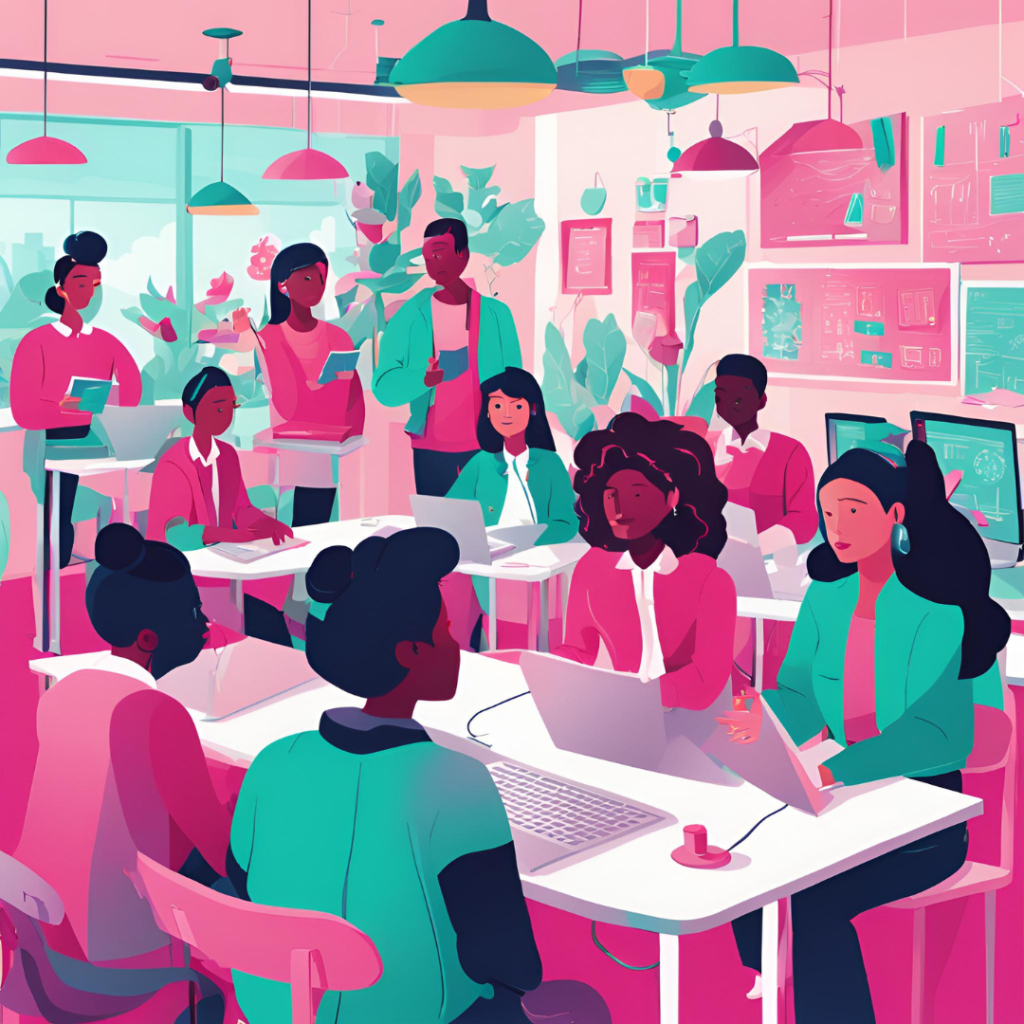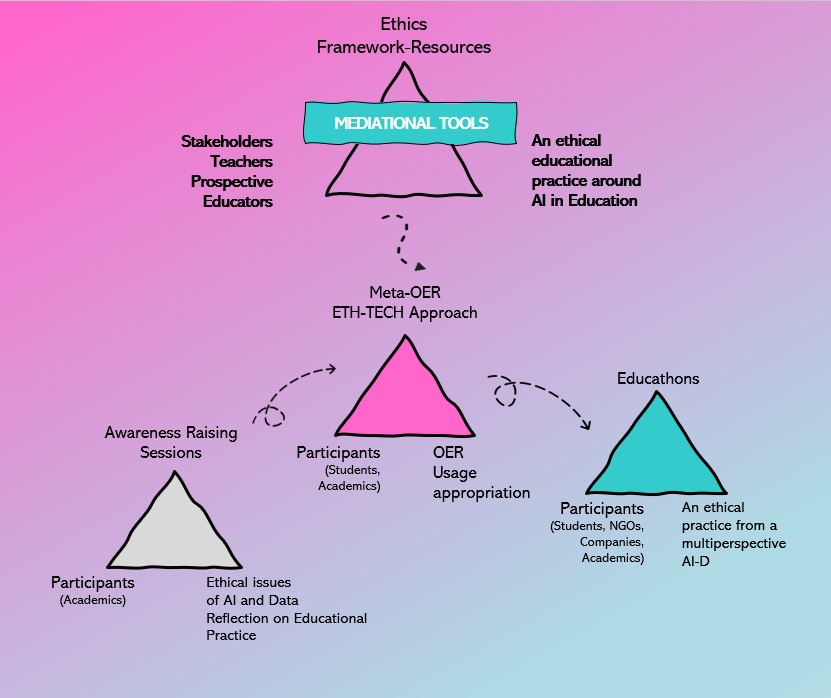
The problem in the EU context
Cultivating an approach of “technologies for good” necessarily implies thinking about what is actually “social good”, an entire concern of ethics.
We need to disseminate a different, more complex, and articulated view on the technologies that embrace an ethical perspective on data and Artificial Intelligence. The EU has initiated a series of documents aimed at mainstreaming ethical considerations into both discourse and practice within the postdigital society. For instance, in 2022, the “Ethical guidelines on the use of artificial intelligence and data in teaching and learning for educators” (Expert Group on AI and Data in Education and Training) was published, providing a framework for teachers and trainers to reflect on the digital transformation.
Mere “innovation mediated by technology” discourses were integrated with a critical perspective considering the ethical conundrum about technologies that are multilayered and that, beyond being instruments, come with multiple consequences for our daily lives. The EU documentation was based on numerous debates, promoted by several working groups, such as the High Level Group on the Ethics of AI (who published the Ethical guidelines for trustworthy AI, 2019) and the document by the Council of Europe (AI in Education: A critical view through the lens of human rights, democracy and the rule of law, also from 2022). Such ideas resonated also in working documents at international level, circulated by UNESCO and OECD. For example, the Recommendation on the Ethics of AI from UNESCO and the OECD AI principles overview include a relevant stance on value-based principles like Inclusive growth, sustainable development and well-being, or transparency and explainability, among others. More eloquent was also the Global report by UNESCO “Technology in Education – A Tool on whose terms? (2023), which addressed the compelling need to embrace a critical approach to technologies, since the expected results of innovation, inclusion, accessibility, and learning and teaching support could be considered more a declaration than a reality. However, as the literature recalls (Floridi, 2023; Holmes et al., 2021; Morley et al. 2021) moving from frameworks to concrete practices with impact on AI developments is not an easy task. Guidelines that are too specific generate a “performative” approach (“ethics checked”) whereas too broad critique and conceptual frameworks leave little space for action in everyday professional and civic spaces.
The recent EU guidelines for an ethical approach to AI and data in education (EU, 2022) need to be discussed, understood, and adopted. But this is actually a challenge.

A conceptual approach
We assumed that the actual problem we need to tackle is the need to move beyond “having” general ethical guidelines to generating transferable ethical guidance into practise. Thinking ethically is totally different from acting ethically. We also highlighted that too specific frameworks tend to be seen as “compliance checklists” with little engagement by end users. And too broad critical guidelines do not always encompass clear approaches to action or activism.
In search for actionable approaches to the problem in the educational context, we considered the theory of mediation (Wertsch, 2007, based on the work of Lev Vygotsky) and further developed within the activity (historic-cultural theory), which main aim is to explain and support transformation and expansive learning (Engenström, 2015).
The Figure on the left shows our idea of intervention in three progressive loops promoting cultural mediation of technological understanding, producing expansive and transformational learning.
FAQs
Who are we?
Take a look at our team and the ideas that shaped the project! [People]
How to know more?
Just browse our current and past activities. And don’t forget to take a look at research and dissemination results. [ETH-TECH Results]
Do you want to know some ETH-TECH backstories?
Take a look at the collected testimonies on ethical approaches, which are guiding the evolution of the ETH-TECH project. [ETH-TECH Stories]
Would you like to share something with us?
Tell us some of your impressions or freely share your own food for thought on ETH-TECH topics. We are waiting for you! [Community]